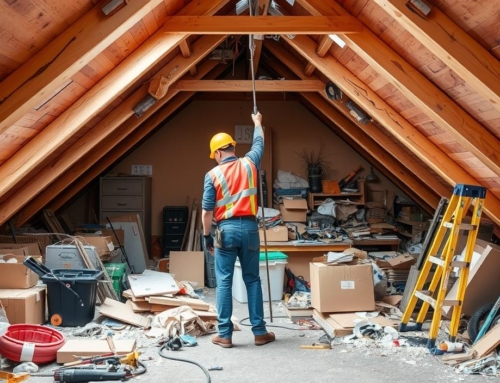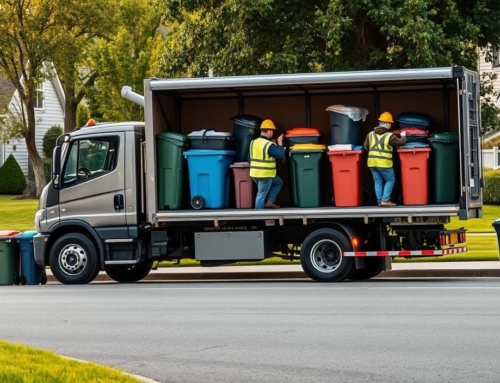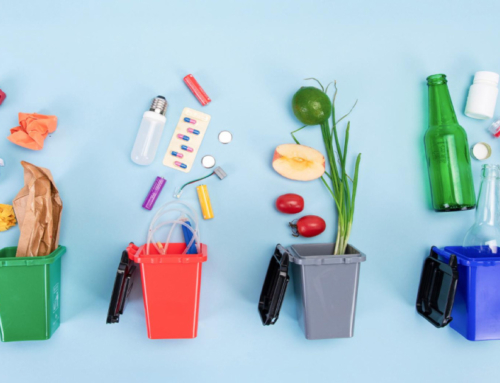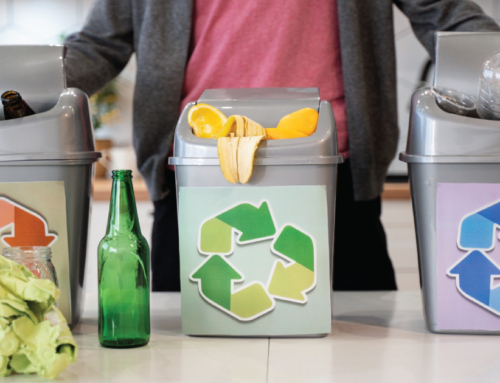Spring in London marks a season of renewal—and an ideal time to refresh your home while embracing sustainable waste practices. Spring cleaning presents an excellent opportunity not just to declutter, but to rethink how we handle our rubbish and maximise recycling.
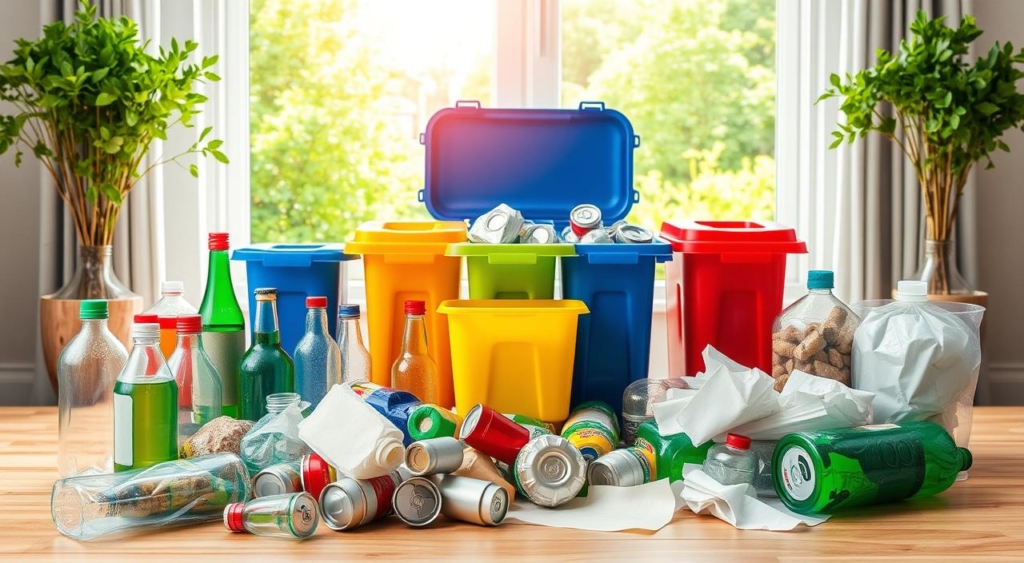
Londoners generate millions of tonnes of waste annually. With the right recycling strategies, residents can help reduce landfill waste, conserve natural resources, and contribute to a cleaner, greener city. Whether you live in a compact flat or a spacious house, implementing smart recycling methods during your spring clean can make a lasting environmental impact.
🔑 Key Takeaways
- Spring cleaning is the perfect time to boost your recycling efforts.
- Understanding London’s recycling system helps reduce contamination.
- Proper sorting and preparation of waste maximises recycling success.
- Council services offer free bins, composting, and specialised recycling collections.
- Community drop-off points and reuse schemes reduce landfill reliance.
The Environmental Benefits of Recycling in London
Recycling is essential for reducing greenhouse gas emissions and conserving resources. In London, where environmental concerns are growing, adopting recycling habits helps achieve the city’s sustainability targets.
Reducing London’s Carbon Emissions
Producing goods from raw materials consumes far more energy than recycling. Here’s how much energy can be saved by recycling common household items:
| Material | Energy Savings |
|---|---|
| Aluminium | 95% |
| Paper | 40% |
| Glass | 30% |
For example, recycling aluminium cans rather than producing new ones saves up to 95% of the energy. When multiplied across thousands of households, this significantly reduces London’s carbon footprint.
Spring Cleaning: Turning Clutter into Resources
Spring cleaning offers a unique chance to adopt greener waste practices. Instead of sending everything to the landfill, sort items into categories—recyclables, reusables, compostables, and general waste.
Tips for Eco-Friendly Spring Cleaning:
- Donate reusable items to British Heart Foundation or Cancer Research UK.
- Set up home recycling stations for different materials.
- Compost garden and food waste instead of binning it.
London’s Recycling System Explained
Recycling in London is managed at the borough level, so the services and materials accepted may vary. Most areas provide kerbside recycling collections and access to local drop-off centres.
How Kerbside Collection Works
Most London councils offer:
- Weekly or fortnightly recycling pickups.
- Separate bins or bags for paper, plastics, glass, and metals.
- Special collections for garden and bulky waste (some by subscription).
Check your borough’s specific services via the London Councils’ directory.
What You Can (and Can’t) Recycle in London
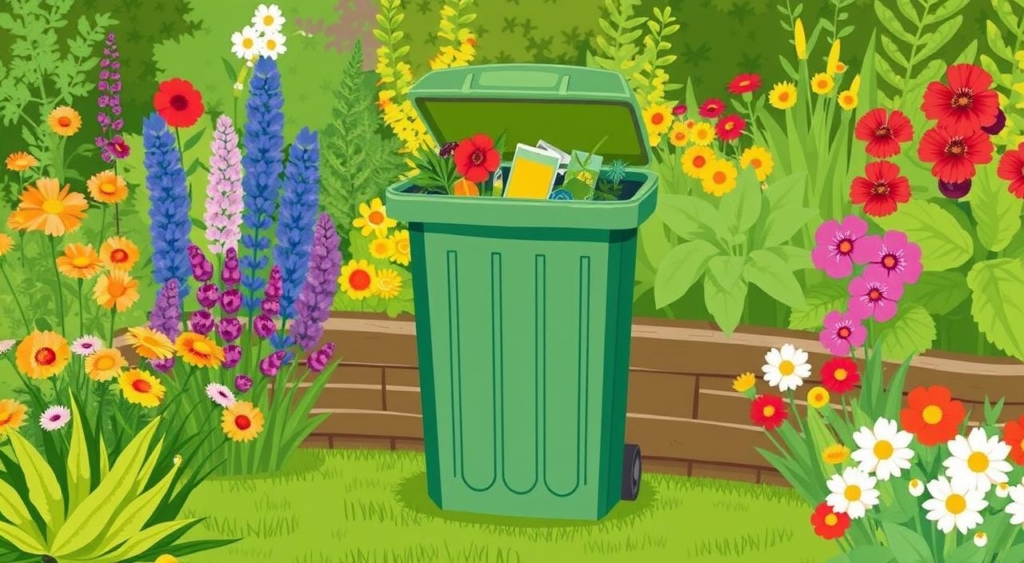
Getting recycling right is key to preventing contamination. A single misplaced item can ruin an entire batch.
Commonly Recyclable Materials:
- Paper and cardboard (flatten boxes)
- Plastic bottles (clean and squash)
- Glass jars and bottles (rinsed, with lids off)
- Tin and aluminium cans
Items That Need Special Handling:
- Food and garden waste (use compost bins or council collections)
- Electronics (drop-off at e-waste sites)
- Batteries, chemicals, paint (take to hazardous waste centres)
👉 Visit Recycle Now’s London guide to check what’s accepted in your postcode.
Must-Have Recycling Equipment for London Households
Equipping your home with the right tools encourages consistent recycling habits.
| Item | Purpose |
|---|---|
| Stackable bins | Perfect for flats with limited space |
| Colour-coded containers | Reduce sorting errors and contamination |
| Compost bin | Turn food and garden waste into nutrients |
| Wall-mounted recycling bags | Ideal for smaller kitchens or utility areas |
You can order recycling bins or replacement bags through your local council’s website.
Mastering the Art of Sorting and Cleaning
To ensure your items are recycled, they must be clean and sorted properly:
- Rinse containers to remove food residue.
- Remove labels and caps from jars and bottles.
- Flatten cardboard to save space.
- Separate recyclables into correct bins.
Avoid Common Recycling Mistakes:
❌ Mixing in food-contaminated items ❌ Recycling plastic film or carrier bags in household bins ❌ Including hazardous items like paint or broken glass
Creating a Household Recycling Plan
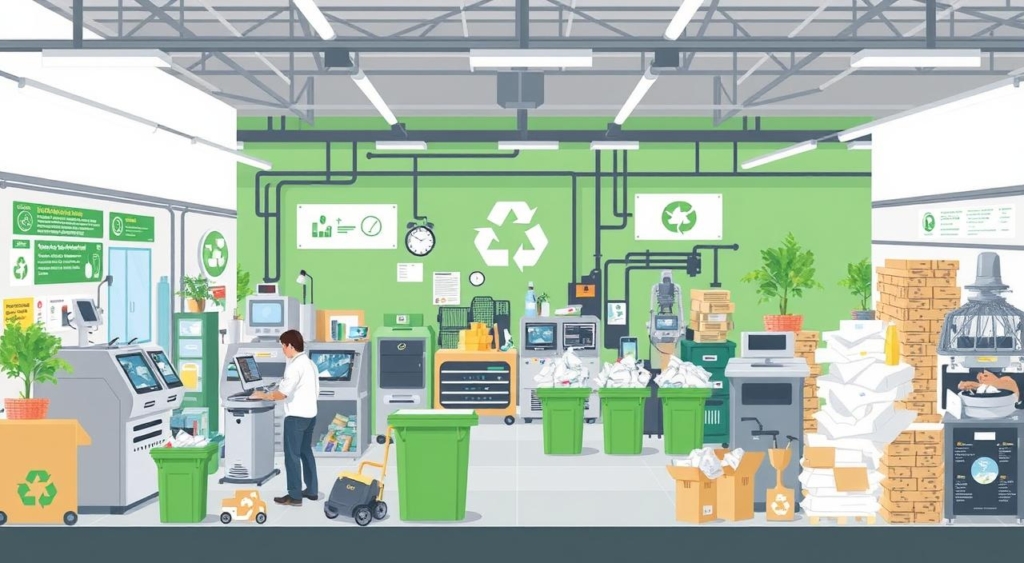
To stay on track during spring cleaning and beyond, develop a personalised recycling plan:
- Identify recyclable items in your home.
- Assign roles to family members (e.g., sorting, rinsing).
- Track progress using a checklist or app like Olio for sharing unused items.
Family-Friendly Recycling Goals
- Reduce contamination rate by 50%.
- Recycle at least 80% of all eligible household waste.
- Repurpose three items instead of binning them.
Explore Specialised Recycling Services in London
Beyond general household recycling, London offers services for more specific needs.
Garden Waste Recycling
Most boroughs provide paid garden waste collection services, including:
- Leaves, grass clippings, branches
- Compostable bags and bins
- Scheduled fortnightly pickups
Or, create your own compost with a home bin available through Get Composting.
Electronic Waste & Hazardous Materials
Dispose of electronics and hazardous waste responsibly:
- Drop off e-waste at Recycle Your Electricals.
- Use council-organised hazardous waste collections.
- Some retailers offer take-back schemes for old devices.
Recycling Beyond the Kerbside
To expand your efforts, go beyond standard recycling with these options:
Community Recycling Centres
Find your nearest Reuse and Recycling Centre to drop off:
- Bulky items
- Scrap metal
- Batteries and chemicals
Charity Shops & Reuse Projects
Instead of throwing items away, donate or repurpose:
- Use donation points at Oxfam or local charity shops.
- Try repair cafés or tool libraries to give items a second life.
Solving Common Recycling Problems in London
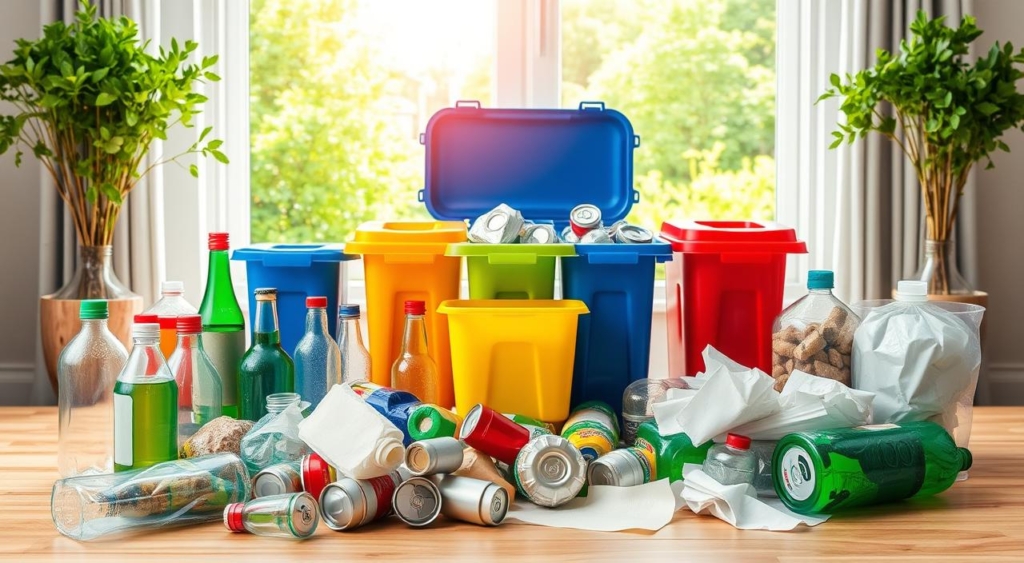
Living in London has its challenges—especially when it comes to waste.
Limited Space? Try This:
- Use slimline bins under the sink.
- Opt for foldable containers in tight spots.
- Hang fabric bags for paper or plastics on walls or inside cupboards.
Missed Collections or Overflowing Bins?
- Report missed bins via your local council site.
- Store extras in sealed bags or containers.
- Drop off overflow at community recycling centres.
📌 Table: Borough Services Snapshot
| Borough | Garden Waste | Bulky Waste | E-Waste Drop-off |
|---|---|---|---|
| Camden | Subscription | Yes | Yes |
| Hackney | Free (limited) | Yes | Yes |
| Westminster | Paid | Yes | Limited |
| Greenwich | Subscription | Yes | Yes |
👉 Always confirm with your borough via their official website.
Conclusion: Make Recycling a Year-Round Commitment
Recycling doesn’t stop with spring. While seasonal cleaning offers a natural opportunity to start, maintaining good habits year-round is essential for real environmental progress.
Consistent household recycling helps London move closer to its sustainability goals and supports UN Sustainable Development Goal 12.5 (substantially reduce waste generation). Remember:
- Sort and clean recyclables.
- Use council services for specialised waste.
- Reuse, repurpose, and donate where possible.
Together, our collective efforts shape a cleaner, more sustainable London.


